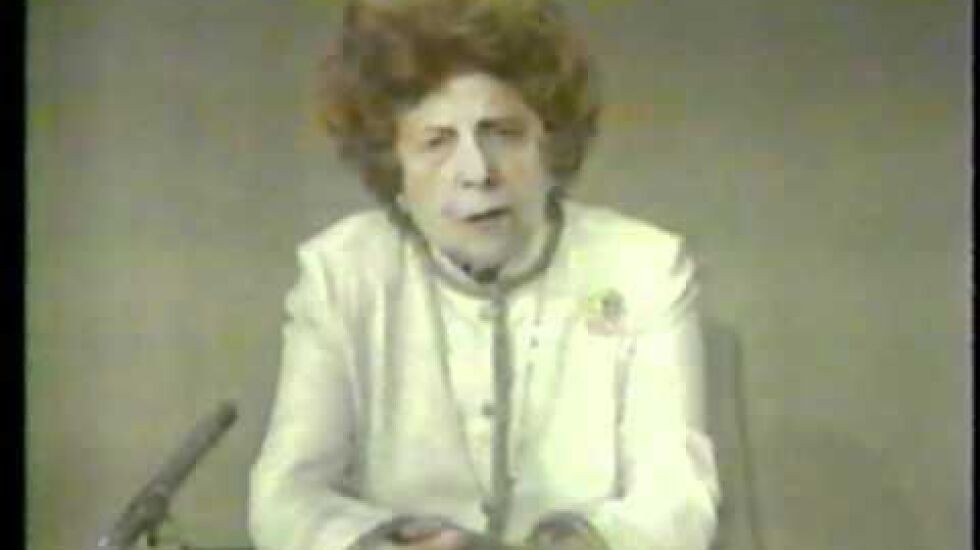
When I try to explain to Americans who Lisa LaFlamme is, I usually say she’s the Katie Couric of Canada: a trusted television anchor on screens across the country.
Such shorthand is necessary because you could be the Queen of Canada and still entirely unknown to 99.99% of people in the United States.
Before last week, the subject of LaFlamme arose in my circle because she is also the significant other of this paper’s former editor and my current friend, Michael Cooke, a perennial topic of conversation in the way that only a certain kind of brash Brit can be.
LaFlamme posted a heartfelt video on Twitter last Monday, announcing that the anchor chair had been yanked out from under her by CTV News’ parent company, Bell Media.
“I was blindsided,” she said. “And am still shocked and saddened by Bell Media’s decision.”
Viewers naturally suspect she was let go because she let her hair go gray during the COVID-19 pandemic.
Couric, despite being a serious journalist, was often dismissed as merely perky. So LaFlamme, though doggedly covering the biggest international news stories, was also a woman atop a male-dominated industry, so not always treated seriously. Her decision to stop dying her hair made national headlines in Canada.
Headlines like “The silver lining to letting our grey hairs flourish during the pandemic,” — parroting the Brits, they call gray “grey” up there — over an opinion piece in the Globe and Mail reaching a conclusion that obviously eluded CTV top brass: “Ms. LaFlamme could have easily sprayed her roots with a shot of Magic Root Cover Up ... but instead decided to let her grey flag fly, and in doing so she somehow earned even more of my trust and respect. So is grey the new honesty?”
Not at CTV. Speaking of honesty, I was initially inclined not to write about LaFlamme — going to bat for a pal’s partner is not exactly Journalism 101. But the Washington Post thought this important enough to weigh in Friday:
“The abrupt dismissal of one of the country’s most prominent television journalists — she has led Canada’s most watched nightly newscast since 2011, and this year won the Canadian Screen Award for best national news anchor — has drawn both a backlash and a national conversation about sexism and age discrimination in the media.”
Why not make that an international conversation? I reached out to Chicago’s own polestar of journalistic probity, Carol Marin. She retired of her own accord in 2020, age 72, but then again, she savvily kept her hair in a strawberry blonde bob. Marin is now co-director of the DePaul Center for Journalism Integrity & Excellence.
“It could be another case of not-very-smart management underestimating their audience,” she wrote to me. “Or a case of a television consultant deciding what everyone’s ‘look’ should be. Most recently, the mandatory ‘look’ was for all women anchors to wear tight-fitting, spandex dresses whether they were flattering or not. I can’t tell you how many women viewers pulled me aside to say how stupid they thought that was. Again, it underestimated the audience.”
Do I need to explain why this is bad, even for those not watching TV in Canada? Maybe I do. There are many ways to try to understand our current world struggle, but the importance of judging people by what they do and say, and not by what they look like, is an excellent shorthand for much that’s going wrong. Suggesting that immigrants of a darker skin color are somehow unacceptable, or that trans women shouldn’t be allowed to read to children, are the type of bad news stories often delivered by newsreaders expected to look like Barbie, lest a wrinkle on HDTV ... I don’t know, somehow break the spell.
For what it’s worth, CTV said in a statement that “recognizing changing viewer habits, CTV recently advised LaFlamme that it had made the business decision to move ... in a different direction.”
Yeah, downward.

I grew up in Cleveland, where WEWS-TV had Dorothy Fuldheim, their crown jewel, who was doing commentaries three times a day into her 90s. Viewers didn’t care how she looked; they valued her because she was so good. It’s odd to think that Canada, with its supposed progressive values, isn’t quite as progressive as Cleveland was in the mid-1980s.
LaFlamme’s replacement is, almost needless to say, 39 years old and a man.







